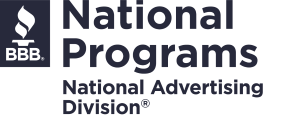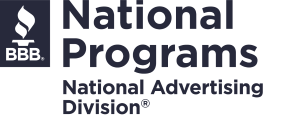The “Pandemic Slide” is Real, but the Emotional Impact of Remote Schooling and Limited Social Interactions is More Concerning
iCrowdNewswire
Jun 03, 2021

MUSE Academy survey of 290 parents with elementary and pre-K children at public and private schools demonstrates impact of the “lost year” of learning during 2020-21
June 3, 2021, New York, NY – A new survey of 290 parents from New York City with children in public, independent, and charter schools shows that the restrictions posed by the pandemic have had a profound effect on the learning progress and emotional well-being of children during the 202-21 school year. The survey, which MUSE Academy conducted through the services of Pollfish, suggests that schools and teachers will need to work hard to regain lost ground and that many children may need social or psychological support to find a new equilibrium.
The respondents to the survey were 52% female, and 48% male, and 56% had children attending independent schools, while 33% attended independent schools, and 9% were in charter schools. Among the respondents, 36% have children attending classes all online, 24% are mainly online, 31% are in a hybrid program, 5% are mainly in person, and only 4% are all in-person.

The vast majority of parents expressed themselves to be satisfied with their children’s learning experience this year, with 68% giving a rating of 4 or 5, with five being extremely satisfied. Despite this, 51% of parents had noticed a “moderate” learning slide in their children, whereas 30% observed a “noticeable” decline, and 10% saw a “severe” learning slide.
“The results of this survey confirm what a difficult year this has been for families in our city, and highlight the challenges we face as educators to help children catch up for what has been a ‘lost year’ for many students,” said Deborah Bradley-Kramer, Head of School of MUSE Academy.
“At MUSE Academy, we were very fortunate that due to our small size, we have been able to hold classes onsite five days a week continuously since September of 2020. With strict testing and safety protocols in place, we have not had a single case of onsite pandemic. However, schools with larger student populations faced significant obstacles to providing consistent, in-person instruction, which is vital to addressing the needs of the whole child.”
Parents also noted a range of social and emotional impacts from the isolation resulting from online or “hybrid” learning models. 26% of parents surveyed noticed modest social and emotional symptoms. 24% observed social withdrawal, 19% saw reduced interest in friendships, 23% noted a reduced interest in outside activities, and 9% said their children had experienced depression or anxiety due to the schooling approach this year.

Among the observations that parents shared were “a lack of motivation in both teachers and students,” “my children aren’t getting the education they deserve,” “it caused my children to lose motivation to do well in school,” “my child is not that eager to go outside anymore, prefers to stay at home,” and “staying away from friends is very cruel.”
“They are doing the best they can, but online learning will just never be the same,” noted one parent. “We need to go back to full-time in person as soon as possible before they start falling too far behind.” However, other parents reported that their children were able to adapt to online learning successfully. Another parent said: “It was horrible. My child now has anxiety and ADHD.”
Asked what changes they would like to see from their schools next year, many parents were emphatic about returning to in-person instruction. Others requested smaller groups for online learning, more personalized attention for their child, increased after-school activities, “no Zoom,” and “stay away from distance education.”
“I would like schools to fully resume so my kids can go back to school, so they can gradually develop a renewed interest in learning,” said another parent. Many parents expressed concern that the schools continue to invest in cleaning and safety protocols once their schools reopen, while others asked for an end to mandatory wearing of masks in school.
“The voices that emerge from the survey underscore the real distress that so many parents have felt trying to balance keeping their children safe with promoting their intellectual development,” said Crocker Coulson, founder and Chair of the Board of Trustees of MUSE Academy. “As our city emerges from the pandemic, it is clear that not only do we need to invest in helping kids catch up academically. And we need to help them reconstruct the rich web of relationships that often centers around school and extracurricular activities.”
Members of the media or education writers who wish to receive a complete copy of the survey results or interview Ms. Deborah Bradley-Kramer should contact Beth Amorosi at [email protected].
About MUSE Academy
MUSE Academy is an independent school in Brooklyn filling a critical need for high-quality, humanist education. We seek to develop the full potential of every child as lifelong learners, expressive artists, and active citizens in his or her community. Music, movement, visual arts, and performance are central to the MUSE educational experience and profoundly contribute to cognitive and social development. Our unique Pre-K and Kindergarten programs nurture creativity and a passion for learning from an early age. MUSE Academy has a diverse, warm, and welcoming community of families, students, and faculty. We are serving ages Pre-K3 through 2nd grade in the Fall of 2021 and plan to add additional grades each year as our students advance, eventually through Grade 12.
Contact Information:
Crocker Coulson, Chair
MUSE Academy
[email protected]




